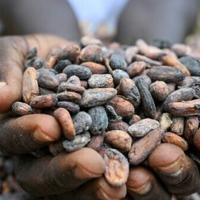Ghana’s government has announced a 45-percent increase in the producer price of cocoa for the 2024/2025 crop season in order to reduce smuggling.
The goal of this policy is also to enhance the well-being of cocoa farmers as the new season commences, according to Agriculture Minister Bryan Acheampong.
The new price, effective as of Wednesday, raises the payment for a 64-kilogram bag of cocoa beans to $192, up from $132.
This sets the farm gate price at $3,063 per tonne, which is a 129-percent increase from the starting price of $1,335 per tonne for the previous season of 2023/2024.
“This is an unprecedented increase of 129.36 percent,” Acheampong stated when announcing the raise on Wednesday.
“This significant hike in the producer price of cocoa shows the government’s dedication to improving the sector and the livelihoods of cocoa farmers in Ghana.”
This price hike comes after a mid-season adjustment last year where prices were raised from $1,335 per tonne to $2,113 per tonne in response to the high international cocoa prices.
New York cocoa futures have recently risen above $7,000 per tonne due to poor harvests in Ghana and Ivory Coast, the top cocoa producers in the world.
However, farmers in these countries often receive much lower prices that are determined by their respective governments.
Experts suggest that increasing the farm gate price could reduce the incentive for illegal cross-border sales, enabling farmers to reinvest in their cocoa farms and potentially alleviating the global supply shortfall.
Ghana’s cocoa yield has declined in recent years due to weather issues, disease, lack of resources, and smuggling.
The cocoa sector, which contributes around 10 percent to Ghana’s GDP, mostly relies on small-scale farmers.
Yet, with the Ghanaian cedi depreciating by over 20 percent against the dollar this year, farmers’ profits have been further squeezed, even though international prices reached $10,000 per tonne in March before dropping.
Production costs have risen, with fertilizers and other essential supplies becoming more expensive, while inadequate road networks have caused transportation expenses to go up.
The sector is also battling the Cocoa Swollen Shoot Virus Disease, which has affected nearly 500,000 hectares of cocoa farms in recent years, representing approximately 29 percent of Ghana’s total cocoa production area.
kme/jj





